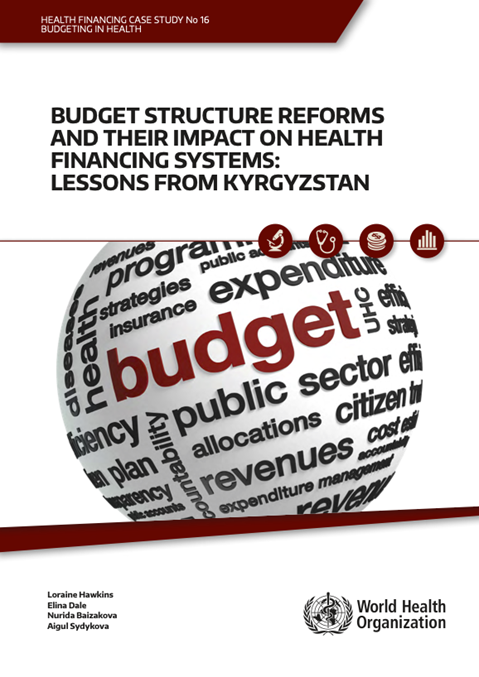Budget structure reforms and their impact on health financing systems: lessons from Kyrgyzstan

Overview
Since its independence, Kyrgyzstan has shown commitment to the goals of the universal health coverage. It has led to documented improvement in financial protection and access to health care. However, the reform process has not been easy: the health sector struggled for a number of years with rigid ex ante input-based controls which dampened the effect of new output-based provider payment methods. For several years budgeting reforms were stuck in a pilot stage and remained a paper exercise done for development partners more than internal stakeholders. In the meantime, health sector continued to struggle with the misalignment which existed between the output-based payment logic in the health sector and the prevailing input-based approach to budgeting.
Recently, the country started making visible changes in its budgeting process, gradually shifting from input controls to accountability for results in the health sector as part of the broader public finance reforms. Specifically, according to the general law on budget (the Budget Code) programme classification should become the main basis for appropriation with performance indicators integrated into the regular budget cycle.
However, for the effects of these changes to be fully realized in practice, the reforms cannot stop here. Ministry of Finance should review the principles and the basis on which budgets are formed to ensure that programmes receive appropriate funding to deliver on the policy commitments and achieve the set targets. Ministry of Health, Ministry of Finance and the purchaser should jointly review programme and sub-programme definitions to allow improved prioritization of spending based on these programme. Where both Ministry of Health and purchaser budgets are supporting the same objectives, there is an argument for aligning programme structure across the health sector. Ministry of Finance should articulate a clear policy on how performance targets and indicators will and will not be used, and communicate this clearly to budget and programme managers in line Ministries, its own staff, staff involved in inspecting/auditing, and legislators – to address the legacy of concern about punitive use of performance measurement. The new authority granted to the purchasing agency should be balanced with strong accountability mechanisms and strengthening of its financial management capacity. Finally, programme budgeting will not work unless MOF and development partners invest in complementary efforts to strengthen financial management capacity in healthcare providers.
Related documents
- Budget structure in health and transition to programme budgeting: lessons from Armenia
Health financing case study No 12. Budgeting in health - Budget matters for health: key formulation and classification issues
Health financing policy brief nr 18.4 - Aligning public financial management and health financing
Health financing working paper No. 4 - WHO Symposium on Health Financing for UHC. Public Financing for UHC: Towards Implementation
Meeting report
